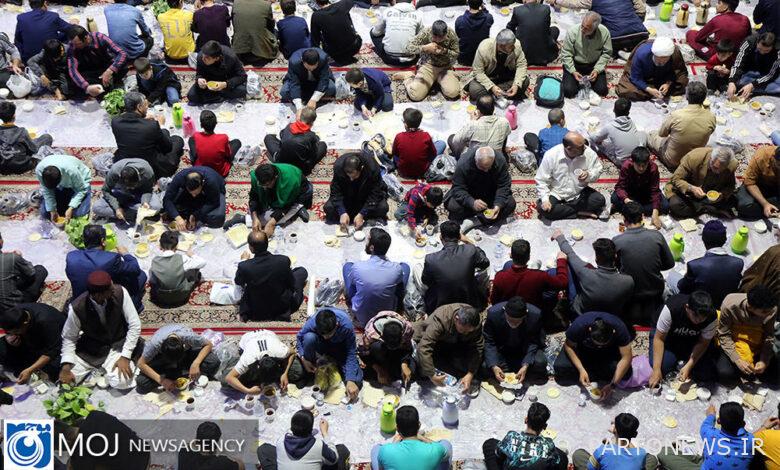The “Iftar” banquet was recorded worldwide

Iran, Azerbaijan, Turkey and Uzbekistan jointly registered the case of “Iftar and its cultural-social traditions” in UNESCO.
According to Moj news agency
the 18th session of the Intergovernmental Committee for the Protection of Cultural Heritage Intangible is being held from Monday, December 4th (December 13th) at Cresta Mowana Resort in Kasan, Republic of Botswana. In this period of the summit, Iran presented three collaborative cases: “Iftar and its socio-cultural ceremony” (jointly with Azerbaijan, Turkey and Uzbekistan), the art of gilding (jointly with Azerbaijan, Tajikistan, Turkey and Uzbekistan) and the celebration of the century (jointly with Tajikistan). presented for registration in the list of intangible heritage, the case of gilding before breaking the fast was voted by the members of this committee for global registration.
Iran case breaking the fast had sent it along with the art of gilding in the spring of 1401 for consideration in this round by the UNESCO Intangible Heritage Committee. This ritual and social and cultural activities related to it have been nationally registered with number 2551 on 28th January 1400.
In the introduction of the Iftar file, it is stated: “In all the countries that are members of this file, Iftar is celebrated by people of all age groups, genders, belonging to different social, cultural and educational backgrounds who recognize Islam as their religion and consider this element as They know the title of their religion, it is performed and passed from one generation to another. Iftar is actually an integral part of their culture and identity, both those who fast and those who do not.
Muslims refrain from eating and drinking in the ninth lunar month from dawn to dusk. Iftar rituals are performed at the end of every day and in Muslim societies it brings happiness and happiness after a hard day.
In the 17th International Committee for the Protection of Intangible Cultural Heritage held in Riyadh, Iran invited Saudi Arabia to join the Iftar case.
Iran has so far registered 22 works in the list of intangible heritage of UNESCO. Traditional skill of carpet weaving in Kashan, row of Iranian music, tazizia, music of parts of Khorasan, drama and story telling in Iran, Nowruz, art of making and playing the fiddle, rituals of Pahlavi or Zorkhane, skill of making and playing dotar, knowledge of making lange, culture of cooking and dividing Lavash bread, carpet washers, traditional skills of carpet weaving in Fars, polo, Iranian painting, pilgrimage to Thaddeus Church, national program to protect the art of calligraphy, Yalda/Cele, the art of making and playing oud, the art of Turkmen needlework and silkworm breeding and traditional silk production for Weaving and the art of gilding are registered in UNESCO under the name of Iran or jointly with other countries.

